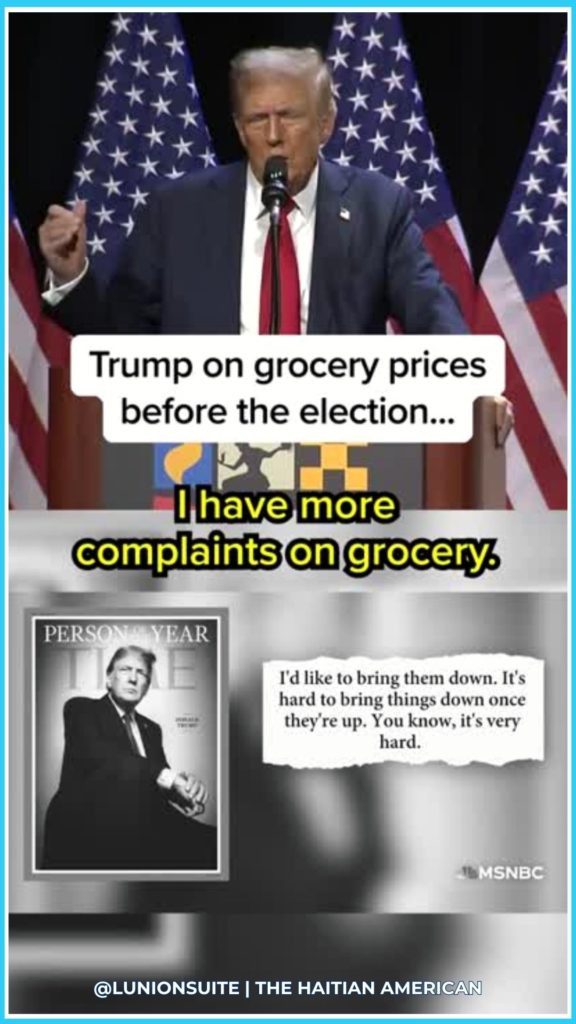President-elect Donald Trump has admitted that reducing grocery prices, a key pledge of his 2024 presidential campaign, may be more challenging than anticipated. In an interview with Time magazine, which named him Person of the Year, Trump expressed cautious optimism about eventually bringing down grocery costs, citing energy price reductions and supply chain improvements as potential solutions.
A Difficult Task Ahead
“They [the Biden administration] got them up. I’d like to bring them down. It’s hard to bring things down once they’re up. You know, it’s very hard,” Trump acknowledged during the interview published Thursday. “But I think that they will. I think that energy is going to bring them down. I think a better supply chain is going to bring them down. You know, the supply chain is still broken.”
Trump highlighted his commitment to bolstering American energy production, which he believes will help lower overall costs. However, he did not provide specific strategies for resolving ongoing supply chain disruptions. Instead, he criticized the Biden administration’s push for electric vehicle incentives, suggesting that energy policy adjustments could yield more immediate economic benefits.
Expert Concerns Over Policy Proposals
Despite Trump’s optimism, industry experts have expressed concerns about the potential economic impact of his proposed policies. His plans to reintroduce tariffs have raised red flags, with analysts warning that such measures could exacerbate supply chain challenges rather than resolve them.
Peter Sand, chief analyst at shipping pricing platform Xeneta, cautioned earlier this year that Trump’s import tariffs could trigger a repeat of past economic disruptions. “Trump’s import tariffs are ‘history repeating’ and will cause a spike in ocean container shipping markets—with consumers picking up the cost,” Sand stated.
During Trump’s first term, similar tariffs reportedly caused a more than 70% increase in ocean container shipping rates in 2018, leading to higher consumer prices.
A Long Road to Price Relief
Grocery prices have surged by 23% overall since the COVID-19 pandemic began in 2020, causing widespread frustration among American consumers. While much of this increase occurred under the Biden administration, the rate of price growth has slowed considerably in the past year, with food inflation now below 2%.
Falling gasoline prices, currently averaging around $3 per gallon, have also helped ease inflationary pressures. Meanwhile, OPEC’s recent decision to cut its global oil demand forecast could contribute to more stable energy costs.
As Trump prepares to assume office, his administration faces the dual challenge of managing inflation while navigating complex global trade dynamics. Whether his proposed energy policies and supply chain improvements will be enough to lower grocery prices remains uncertain. For now, both consumers and industry leaders are watching closely, hoping for tangible solutions in the months ahead.
















